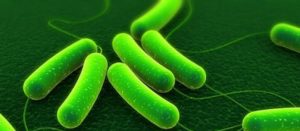Six children in Lynden, Washington have been sickened with E. coli infections after attending a festival at the Northwest Fairgrounds on April 21 – 23, 2015, according to the Whatcom County Health Department. The Milk Makers Fest is held at the fairgrounds and is sponsored by the Whatcom County Dairy Women. Lab tests have confirmed three cases of E. coli poisoning. The Blaine School District has released a statement about a confirmed case of E. coli at their primary school.
 More than a thousand children from all school districts in the county were introduced to farming at the festival and could pet farm animals such as sheep, small horses, rabbits, chickens, and a calf. Hand sanitizers were provided at several locations during the event, but they are not a substitute for washing with soap and water.
More than a thousand children from all school districts in the county were introduced to farming at the festival and could pet farm animals such as sheep, small horses, rabbits, chickens, and a calf. Hand sanitizers were provided at several locations during the event, but they are not a substitute for washing with soap and water.
No source for the pathogenic bacteria has been singled out, but petting zoos have been a source for E. coli infections in the past. Last year, an E. coli outbreak in Minnesota sickened 13 people after they visited the traveling Zerebko Petting Zoo at county fairs. An E. coli outbreak in 2004 at the North Carolina State Fair sickened 108 people, including 15 who suffered kidney failure as a result of developing hemolytic uremic syndrome (HUS).
The Centers for Disease Control and Prevention (CDC) recommend that young children should be kept away from entering open-interaction areas of petting zoos. These animals can carry E. coli bacteria without being sick because they do not have receptors on their cells that accept the bacteria. The bacteria can get onto the animal’s coat after it is released in feces, then is easily transferred to people.
Children should be closely supervised while around farm animals. Hand-to-mouth contact is very common in young kids. Thumb-sucking and putting fingers in the mouth should be discouraged. Appropriate hand-washing facilities must be at every petting zoo menu, and trained staff should be on hand where animal contact is permitted.
The symptoms of an E. coli infection include abdominal cramps, diarrhea that is watery and/or bloody, and a mild fever. These symptoms usually appear within two to eight days of exposure. Children five and under are especially vulnerable to HUS development, and can lose kidney function if their infection worsens. If your child attended this event and is experiencing these symptoms, take her to the doctor immediately. If an E. coli infection is treated with antibiotics, the chances of HUS development increase.




